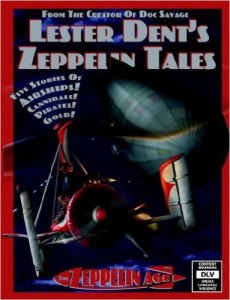One of the things we take for granted here in the West is television. It is everywhere. You can find it in doctor’s and dentist’s offices, bars, and of course at home. Television is used for security monitoring and it has gone to outer space. Television is out of this world. Where would we be without it?
I have always known television. Growing up in the ‘50s and ‘60s, I watched plenty of the black and white world of the tube. And when color came along in the later ‘60s, I thought I’d entered paradise.
Even though we may not be able to imagine a world where TV doesn’t exist, it wasn’t all that long ago that it didn’t exist. My parents grew up with radio for entertainment in the ‘30s and ‘40s. For them, television was something as fantastic as Buck Rogers and his space ship or Superman or Dorothy in Oz. I can remember my mother saying, while listening to radio dramas as a girl, how she wished she could see the show instead of just listen to it. She did get her wish.
So when did television begin? Would you believe the foundational technologies and machines responsible for TV were developed in the 1840s and 1850s? That the name itself was coined in 1900? And the first instantaneous transmission of images occurred in 1909? It is all true. The Victorian and Edwardian eras laid the foundation for what eventually became television.
I am continually amazed at how many things we take for granted today, were first conceived of or initially developed or had their roots in the Victorian era. The 19th century, second only to the 20th, was the most fertile time period for human inventiveness. The human imagination was operating on steroids.
Mechanical Television
Television, as we more or less know it today, began in the 1920s through the work of the Scottish inventor, John Logie Baird, and three Americans: Charles Francis Jenkins, Herbert E Ives, and Frank Gray (the latter two worked for Bell Telephone Laboratories).
The first TVs were mechanical devices and depended on a spinning disk called a Nipkow Disk for transmission of the picture. The disk separated a picture into lines which could then be transmitted by wire or wireless technology and then the disk played back the picture and the eye, due to persistence of vision, saw the picture as a unit.
Baird marketed his TV as the “Baird Televisor”. They were very expensive: costing $1000 back in the early depression. Somewhere between $13,000 and $14,000 today. A kit could be had for $39.50, or about $576 in today’s dollars.
The work of Ives and Gray led to the creation of the first television station, W2XB, known as WGY Television, in 1928 in the US. The station still operates today.
The BBC in 1929 had 30 regularly scheduled programs and in 1931 there were 25 stations broadcasting in the US, some in Iowa and Nebraska.
However the mechanical television had two major problems: small picture size and poor picture quality. Below is an example of what people would see on a Televisor. Do note, the reproduction is poorer than the actual image because the light level of the original is so low. But it gives you an idea of the wonder that was early TV.

This site has an animated version of what a mechanical TV picture was like: http://www.talkingelectronics.com/projects/MechanicalTV/MechanicalTV-1.html
The picture size was small due to practical limitations in how big the Nipkow disk could be made. Picture quality was poor due to there only being 30-60 lines per frame instead of the 525 for US standards or 625 for European standards.
Consequently, image size and quality killed mechanical television. The public just wasn’t interested. Broadcasts ceased in the US by 1933, except for a few universities which kept broadcasting until 1939. The BBC stopped in 1935 and the Soviet Union quit in 1937.
Electronic Television
While mechanical television was enjoying its day in the sun, work was progressing on the cathode ray tube, first invented in 1897. As early as 1914 a system for image transmission was developed, but image quality was very faint.
Image improvement came from Kálmán Tihanyi’s invention of “charge storage”, whereby the camera tube (or transmitting tube) accumulated and stored electrical charges which enhanced picture quality. RCA bought Tihanyi’s patents. In 1929, the first live human images were transmitted. They are 3 1/2 inches in size and used a system developed by Philo Farnsworth, a competitor to RCA.
The EMI engineering team in Britain won the race to produced a new camera which could make viable television images and in November 1936 began the world’s first regular high-definition television service.
Interestingly enough, Kálmán Tihanyi in 1936 described the principle of plasma display and the first flat-panel display system. Flat-screen TVs and Plasma TV are pure dieselpunk. Who would have thought it?
I don’t recall writers from the time period using TVs, which I find rather odd since they did exist. If they could envisioned fantastically futuristic airships, space ships, and death rays — why not fantastic televisions?
What’s even more odd, to my thinking, and I’m just as guilty, is why aren’t we retro-futurist writers putting TVs into our stories? Everything is possible in the retro-future, so why haven’t we put TVs into our stories?
The development of the TV is incredibly fascinating reading. Contributions came from all over Europe and the US to give us what we take for granted today. And now that I know about it, you can bet your next paycheck Rand Hart is going to be watching TV the next time he’s on the Hindenburg. Maybe a broadcast of the opera “Fedora” by Giordano.
Further Reading
http://www.earlytelevision.org/mechanical.html
http://www.tvhistory.tv/1920s%20TV%20Picture.htm
http://www.talkingelectronics.com/projects/MechanicalTV/MechanicalTV-1.html This site has an animated TV picture.
Share This!


